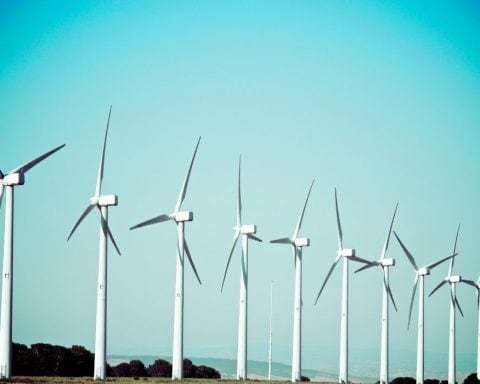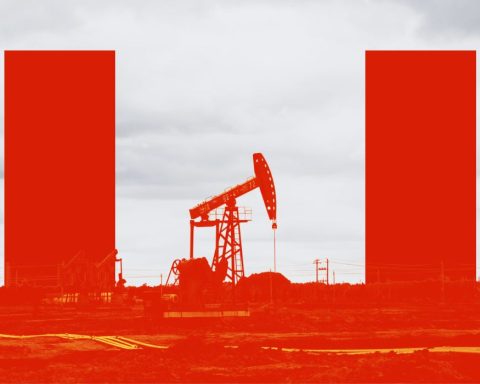As the climate crisis escalates, there are urgent and difficult choices that need to be made to drastically reduce our carbon emissions before more irreparable damage is done.
Many have argued the energy industry needs to change to reduce carbon emissions, but one concern that remains is the consequence this will have on economic prosperity.
Discussions vary across interest groups. Do we need to outright replace the fossil fuel industry with the renewable energy industry as soon as possible? Should we slowly phase out fossil fuels while making clean renewable replacements? Or, should we continue with a powerful fossil fuel industry while separately growing a renewable industry in parallel?
How these different choices could impact our economies seems unclear, and it is this lack of clarity that opens up the field for frustrating discussions. At the recent COP28 climate summit in the United Arab Emirates, the conference president shockingly said that there is “no science” behind any decision to phase-out fossil fuels from our energy systems — a statement which he later claimed was “misinterpreted.”
My recent research examines energy industry restructuring options for a green transition to renewable energy from an economic perspective.
Although economic analysis is helpful, it is not sufficient on its own for making these important decisions. So, my research also draws on sustainability which involves considering the conditions faced by future generations, and a concept known as equifinality reminding us to keep our minds open to many possible approaches that may satisfy the same objectives.
Renewable energy innovation and GDP
My research indicates that renewable energy innovation contributes to higher GDP. Contrary to some commonly held beliefs, a clean transition is, and has been for at least a decade, good for the economy — even in earlier stages of its development.
My findings also suggest that government and industry support for the fossil fuel industry negatively affects a country’s renewable energy innovation. The two industries are not compatible.
When the fossil fuel industry invests in itself, it also appears to improve GDP, which creates confusion about the best way to ensure economic prosperity while transitioning to clean energy.
But this investment, often made through lobbying, only prolongs the existence of the fossil fuel industry by keeping renewable energy competition out. This creates a false dichotomy between reducing emissions and improving GDP when, in fact, clean innovation can achieve both simultaneously.
My research indicates that clean innovation makes a stronger economy and reduces emissions. If we want to reinforce that dual progress, rather than accepting trade-offs, then we have to stop supporting the fossil fuel industry which aims to slow it down.
Helping renewable energy thrive
Economically speaking, the fossil fuel industry is negatively impacting consumer welfare by maintaining higher-than-necessary prices due to limited competition. This, in turn, bumps up GDP through inflated profits, having subsidised an already dominant polluting industry, reducing clean innovation and delaying cleaner progress — obviously not the way to grow a healthy economy.
In fact, GDP is not a standard of living measure or a measure of innovative competitiveness. To address inflation and the cost of living crisis, we should be promoting more competition across industries. This is a more productive type of capitalism that brings wider benefits to all of us, including more innovation, lower prices, and better products for domestic and export markets.
Government subsidies that boost the fossil fuel industry hinder consumer welfare and the transition to clean energy. Some examples include subsidies to fund more carbon capture and storage technology and the use of fossil energy in hydrogen storage systems.
Instead of funding these backward subsidies, governments should implement pollution taxes while also supporting renewable energy innovation.
My research demonstrates that pollution taxes work well with clean innovation capabilities. Supporting research and innovation in renewable energy and using a carbon tax as a tool can boost the economic benefits of transitioning to clean energy.
The findings of my work suggest that a robust economy is related to industry restructuring so that renewable energy innovation can thrive. Fostering novel scientific discoveries in clean energy innovation should be prioritized while reducing non-competitive industry formations and organizations, such as fossil fuel oligopolies and industry associations.
Making decisions with the future in mind
Increasing public awareness and understanding of fossil fuel industry games is a way to accelerate change. It’s important to recognize that industries at different life cycle stages contribute to the economy in different ways.
A newer rising industry with determined entrepreneurs, like that of renewable energy, invests in innovation to create value. On the other hand, a declining industry plays end-game strategies, like engaging in self-promotional activities, to maintain their existing position and create barriers to new industry entries.
However, consumer welfare increases with competition, not collusion. Economic analysis is not sufficient on its own for decision-making in this area because positive economic outcomes can be generated by different kinds of strategies supporting an industry’s life cycle goals.
Government policy decisions should be made based on economic analyses alongside broader sustainability criteria. Ignoring the equifinality argument and reverting to discussions about replacing coal with gas as a bridge only ensures fossil fuels remain in use for at least another generation of infrastructure.
Communities should apply sustainability and equifinality lenses to decision-making, understanding that there are many possible means to an end. For example, if a community has specific concerns about one type of renewable energy system, they should explore other alternative clean energy options instead of defaulting to fossil fuels.
An educated public should reject simplistic and single-sided arguments and understand there are usually more nuanced solutions to problems supported by evidence-based analysis. By embracing a more holistic approach, we can develop more sustainable societies by opening up renewable energy possibilities.
This story was first published on The Conversation. Read the original article here.
Deborah de Lange is associate professor, global management studies, at Toronto Metropolitan University.





